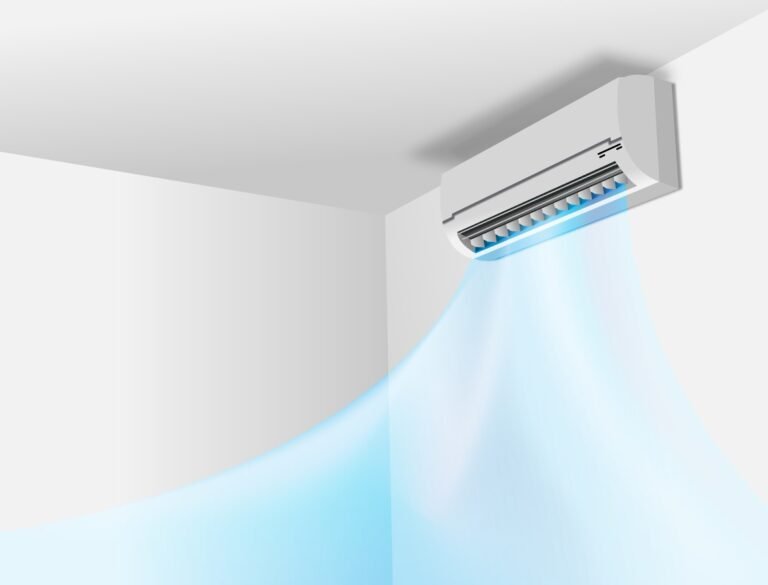A failing air conditioner or heater can quickly disrupt the comfort of your home, especially during extreme weather. Whether you’re sweltering in the heat or shivering in the cold, dealing with HVAC issues is never convenient. Fortunately, knowing how to respond effectively can help minimize discomfort and prevent the problem from worsening. This guide outlines practical steps to take when your heating or cooling system stops working.
Recognizing the Signs of a Problem
HVAC systems often show warning signs before they stop functioning altogether. According to Lex Air Conditioning and Heating, while a good HVAC unit can run for a long time without problems, there are times when your HVAC system may tell you it needs repair. Strange noises, inconsistent temperatures, weak airflow, or unexpected increases in your energy bill can all indicate something is wrong. Identifying these signs early can save you from a complete system failure and help you address the issue more efficiently. Other warning signs include unpleasant odors, which might suggest mold or burnt components, or visible leaks around the unit.
Checking the Basics
Before reaching out to a professional, troubleshoot common issues that might cause your system to stop working. Start by ensuring that the thermostat is set to the correct mode and temperature and checking if it has fresh batteries. A thermostat issue is one of the simplest problems to fix, yet it’s often overlooked. Next, inspect your circuit breaker. Power surges or overloads can cause the breaker to trip, cutting off electricity to the HVAC system. Resetting it may restore functionality. Also, examine the air filter. A clogged or dirty filter restricts airflow, forcing the system to work harder and potentially leading to overheating or shutdown. Replacing the filter could solve the problem and improve the unit’s performance if the filter is dirty.
Calling a Professional Technician
If basic troubleshooting doesn’t resolve the issue,call a professional HVAC technician. Certified technicians are trained to diagnose and fix various problems, from refrigerant leaks to malfunctioning compressors. When choosing a service provider, look for one with strong reviews, proper licensing, and experience with your specific type of system. Provide as much detail as possible when describing the issue to the technician. Mention any unusual noises, odors, or performance changes you’ve noticed. This information can help them pinpoint the problem more quickly, potentially saving time during the repair process.
Temporary Solutions for Comfort
While waiting for repairs, there are ways to make your home more comfortable. If your air conditioner has failed during a heatwave, use fans to circulate air and keep blinds or curtains closed to block sunlight. Opening windows during cooler parts of the day can also help reduce indoor temperatures. For a failed heater in the winter, layering clothing and using blankets can provide immediate warmth. Space heaters can be helpful but should be used cautiously. Avoid leaving them unattended and keep them away from flammable materials. Sealing drafts around windows and doors can help retain the heat already present in your home.
Preventing Future Failures
Schedule regular professional inspections to identify and address potential issues early. During these check-ups, technicians can clean components, ensure proper refrigerant levels, and test the system’s efficiency. Simple tasks like regularly changing the air filter can also make a significant difference. Dirty filters force the system to work harder, increasing wear and tear and the likelihood of breakdowns. Keeping vents clear and ensuring the outdoor unit is free of debris will further support optimal performance.
Knowing When to Replace Your System
If your HVAC system frequently breaks down, struggles to maintain desired temperatures, or is more than 10-15 years old, it may be time to consider a replacement. Aging systems are often less efficient and more prone to costly repairs. A new unit, though an upfront expense, offers long-term savings through improved energy efficiency and fewer repair needs. Consult with an HVAC professional to explore your options. They can recommend a system that fits your home’s size and energy requirements, ensuring you get the most value from your investment. Modern HVAC systems often come with advanced features like smart thermostats and energy-saving modes, making them a worthwhile upgrade.
Facing a failing air conditioner or heater can be stressful, but taking the right steps can make a significant difference. Recognizing warning signs, troubleshooting simple problems, and seeking professional help when needed can resolve the issue quickly and effectively. By implementing regular maintenance and knowing when to upgrade, you can ensure your HVAC system continues to provide reliable comfort for years to come. Prioritize these practices to keep your home comfortable and avoid unnecessary disruptions.

Daniel J. Morgan is the founder of Invidiata Magazine, a premier publication showcasing luxury living, arts, and culture. With a passion for excellence, Daniel has established the magazine as a beacon of sophistication and refinement, captivating discerning audiences worldwide.





